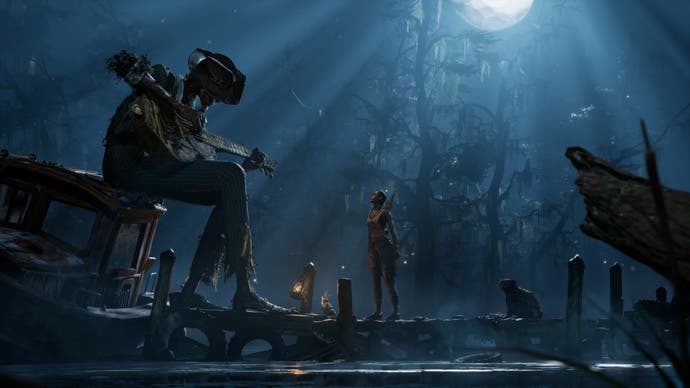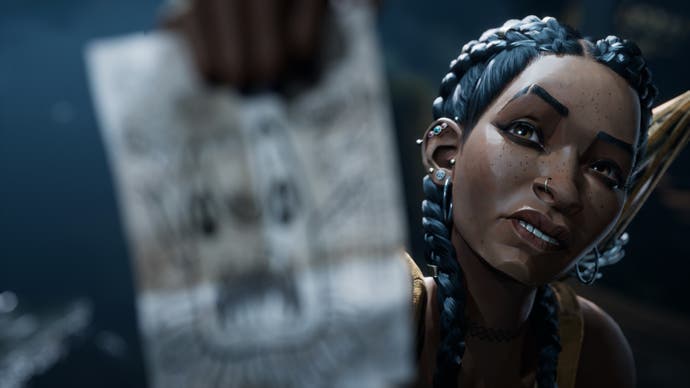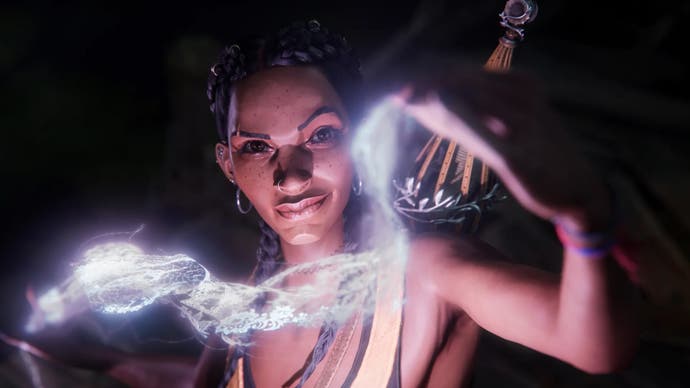South of Midnight developer ensured its Black heroine was created by Black women
"Key for understanding and writing Hazel's voice."
Last night, developer Compulsion unveiled its new game South of Midnight, and introduced us to its heroine, Hazel.
Hazel is a Weaver, a "magical mender of broken bonds and spirits". Compulsion has described her as "outwardly confident, wisecracking, and actively on the hunt". Hazel is also Black, something that narrative producer and creative specialist James Lewis lamented is "unfortunately... still pretty unique for video games".
Thankfully, the South of Midnight developer has ensured its Black heroine was created by Black women and women of colour, calling this inclusion "key for understanding and writing Hazel's voice."
Speaking with Xbox following South of Midnight's reveal, Lewis, along with creative director David Sears, discussed the team's responsibility to represent Hazel correctly in their upcoming game.
"I think part of the trouble of having limited representation is that it can put a lot of pressure on any one character to represent every aspect of a culture," Lewis said. "To tell the story of a Black woman in this setting creates another level of complexity that the team had to meet with curiosity and empathy."
"I think the reason Hazel stands out for me is she has many of the same issues as real people have, which is refreshing as she's trying to learn to be a hero," Sears added when discussing the character.
"But she's unstoppable. And it's about her finding her footing and going out into the world to make it a better place."
Lewis continued: "At the end of the day, we want Hazel's story to shine through. Hazel's job is not to fix racism or the South's troubled history.
"Those challenges are not fair to her. Her job is to be seen as a person coming of age in a scary and beautiful world. Making her an authentic person that people like my wife, my daughter, my mother - who all look like Hazel - will hopefully recognise and relate to."


This news is welcome for authentic representation, particularly in the wake of Forspoken and controversy regarding perceived Black stereotypes and an all-white writing team. Square Enix did, however, employ paid consultants to analyse its representation.


